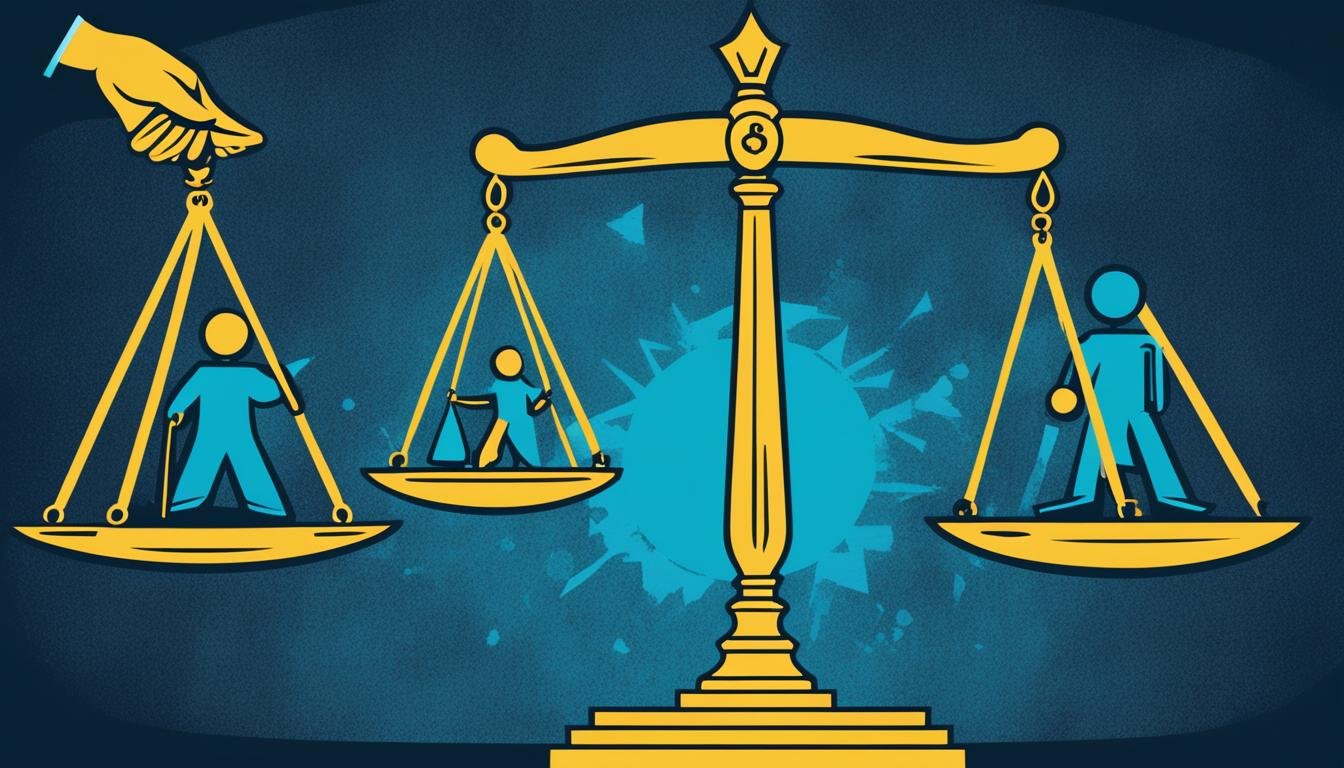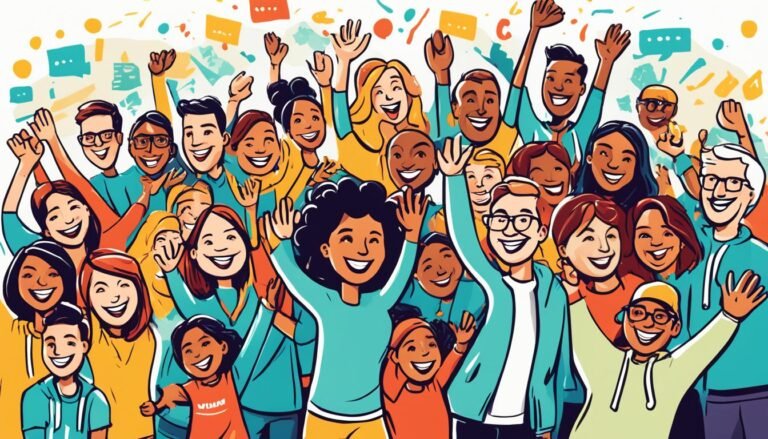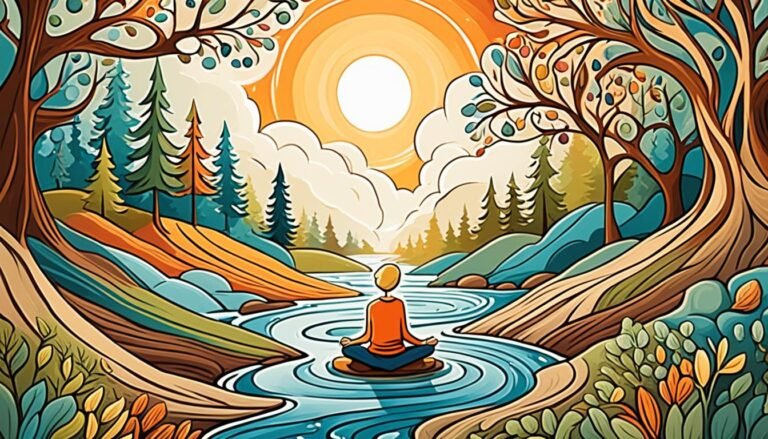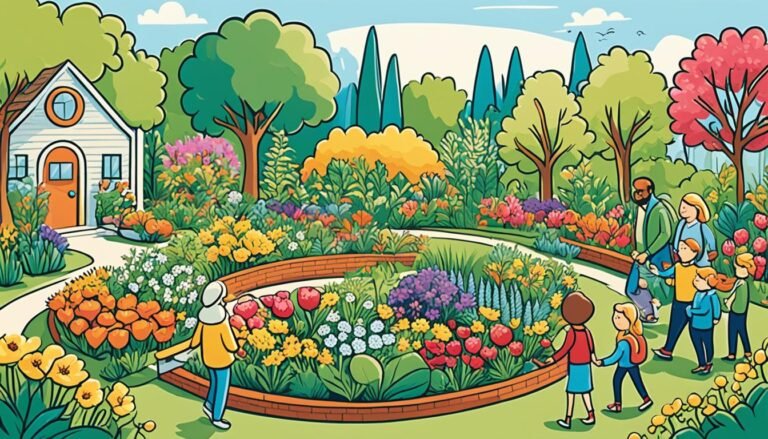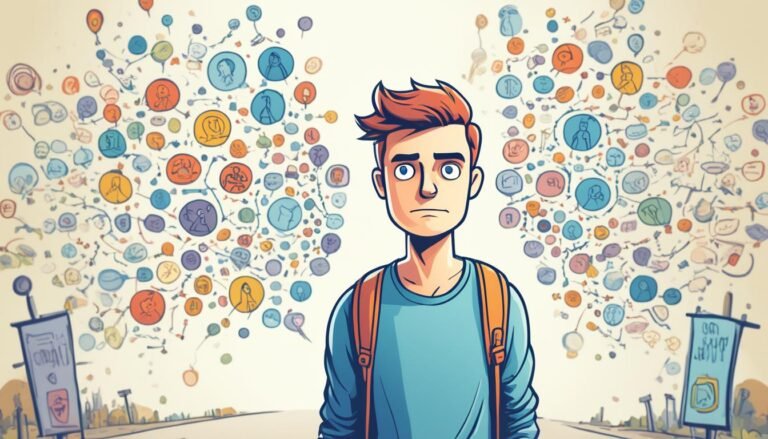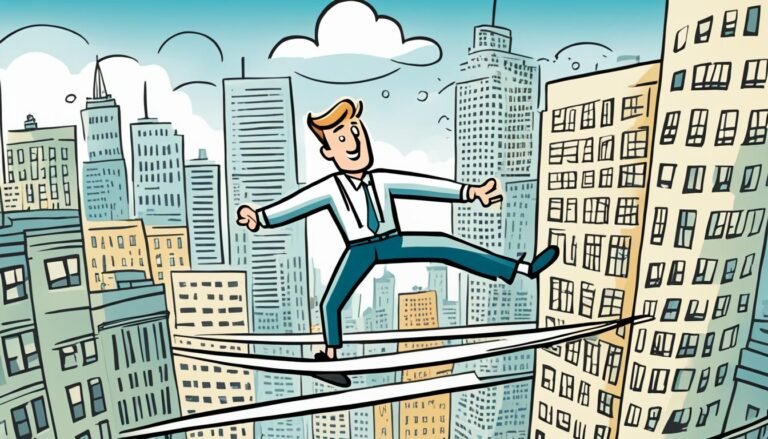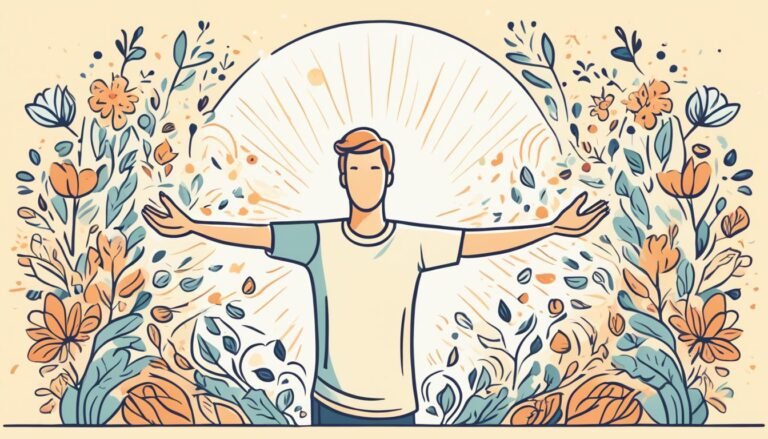Justice and Fairness: Upholding Principles of Equity and Equality in Society
“Injustice anywhere is a threat to justice everywhere.” – Martin Luther King Jr.
Justice and fairness are the foundations of a fair and peaceful community. They ensure equal rights for all, no matter who they are. With justice and fairness, society can flourish, and people are treated with honor.
But, what exactly are justice and fairness? Why are they crucial in our society? How do they affect our lives and how we treat each other? This article aims to answer these questions. We will look into the key roles that justice and fairness play in making sure everyone has equal opportunities and rights.
The Meaning and Importance of Justice
Justice is key for a healthy society. It maintains balance and ensures laws are fair for everyone. It guarantees equal opportunities, rights, and protection. This is true no matter someone’s background or status.
So, what’s the big deal about justice anyway?
Justice is about being fair and impartial. Decisions are made based on reason and solid standards. It treats people equally and holds them responsible for their actions. This helps maintain peace and protect everyone’s well-being.
The value of justice can’t be overstated. It’s essential for a society that works well and follows the law. Justice makes sure people are treated fairly, no matter who they are. This includes their race, gender, or social standing.
“Justice is the cornerstone of any civilized society, providing the framework for resolving disputes, preventing abuses, and safeguarding the rights of all individuals.” – John Marshall
- Preserving Order: Justice keeps society peaceful by stopping lawbreaking and punishing harmful acts. This way, everyone can live and work safely.
- Protection of Individual Rights: Justice respects and safeguards everyone’s rights. It assures a way to fix things if these rights are ever tampered with.
- Promoting Equality: Justice fights discrimination and aims for equality. Everyone should get the same chances and treatment.
- Building Trust and Confidence: Trust in justice makes people believe in the system. This belief leads to cooperation and a better society for all.
“Without justice, society would descend into chaos, with each individual looking out solely for their own interests.”
Justice is crucial beyond the law. It’s needed in education, healthcare, and governing. Embracing justice builds a society that honors everyone’s rights and dignity.
The Significance of Fairness and Equality
Fairness and equality are key to making a society fair and peaceful. They mean everyone gets a fair chance and is valued equally. This includes all people, no matter who they are.
When things are fair, people can do well based on their own work and skills. It’s not about who they know or where they come from. This helps create a place where everyone feels they belong.
Equality says everyone should have the same opportunities and rights. No one should be treated badly because of their race, gender, or other differences. It’s all about being fair to all.
“Fairness and equality are essential for building trust, fostering social cohesion, and promoting cooperation within communities.”
By making sure things are fair and equal, we can make society better for everyone. It gives people the chance to do their best. This makes people trust the systems in place and feel like they are part of something bigger.
Also, having fairness and equality lets everyone’s unique ideas shine. This brings new and creative things to society. People feel understood and valued when they are treated equally.
But, we must keep working on fairness and equality. Bad habits and unfair systems are hard to change. Everyone needs to fight against unfairness and stand up for what is right. This way, we can keep making our world a better place for all.
Image:
Upholding Equal Rights through Justice
Justice is all about fairness and equal chances for everyone. It’s more than just punishing those who do wrong. It’s making sure every person can enjoy their rights without any discrimination.
Equal rights help communities stay together. They make sure no one is treated unfairly and encourage people from all walks of life to join in. When we stand up for justice, it helps keep equal rights strong.
Equal rights are really important. They let people live with honor, without the fear of being treated less. With equal rights, people can access education, healthcare, work, and social activities, no matter who they are.
“Equal rights are not a luxury or privilege; they are a fundamental aspect of a just and equitable society.”
Justice is key to guiding equal rights. It makes sure laws are fair for all and punishes those who violate others’ rights. Justice fights against unfairness, helping everyone have the same chances.
By valuing and protecting equal rights, societies can become better for all. Equal rights let people be a full part of society, help the economy grow, and ensure a future that’s fair to everyone.
Examples of Upholding Equal Rights through Justice
- Legal systems that protect and uphold equal rights, ensuring that all individuals are treated with fairness and equality before the law.
- Rulings and legal precedents that set the standard for equal rights and prohibit discrimination in various areas, such as employment, housing, and public services.
- Advocacy and activism that fight for equal rights, raising awareness and challenging societal norms and practices that perpetuate inequality.
Keeping up with equal rights takes hard work and learning. We need to face and change unfair systems. Putting equal rights first makes our world more just and open to all.
Ensuring Due Process for Fairness
Justice and fairness are key in our legal system. Due process is crucial for a system that’s fair for all. It means everyone is treated the same way under the law.
By following due process, the legal system ensures fairness and protects people’s rights. This includes giving everyone a chance to present their side in court. It makes sure no one is unfairly treated because of who they are or where they come from.
Due process also makes sure legal matters are handled openly and without favoritism. Everyone involved gets the same opportunities and rights. This builds trust in our legal system, where individuals believe they will get a fair hearing.
“Due process is not just a legal principle; it is a fundamental aspect of a just society. It protects individuals from the potential abuse of power and ensures that everyone is subject to the same rules and procedures.”
Due process leads to legal fairness. It ensures decisions are made by thoroughly and fairly looking at all facts. This prevents unfair or discriminatory outcomes in court cases.
Due process is important in criminal and civil cases as well as hearings. Its purpose is to keep things fair and protect people’s rights. It makes sure all involved know the charges against them, get a chance to speak, and have a fair judge.
To wrap it up, due process is crucial for justice and fairness. Following these rules in the legal system keeps things fair and protects rights. It’s foundational in ensuring the legal system is trusted and promotes fairness in society.
Non-Discrimination and Justice
Non-discrimination is key for justice. It makes sure everyone gets fair chances and is treated well. In a fair society, all should be shielded from discrimination, no matter their background.
Having fair justice means getting rid of discrimination and biases. Everyone should be judged on their skills, not their looks or who they are. It rejects unfair treatment.
Non-discrimination promotes fair access to legal rights for all. It fights against barriers that keep some from enjoying their rights fully. This is crucial for justice.
“Discrimination has no place in a just society. It is our collective responsibility to ensure that fairness and equality prevail in all aspects of life.”
By being against discrimination, we respect everyone’s rights. But, we must always watch out for and fight discrimination where it hides in our communities.
Importance of Equality in Justice
Equality in justice means treating everyone fairly, no matter their differences. It ensures justice is fair, giving all the chance to be heard in court fairly.
Without fair justice, some groups might suffer more. Promoting non-discrimination is the key to removing unfairness in society.
We need to keep working for fair access to justice for everyone. We do this by staying aware and fighting discrimination together, always striving for better.
Non-discrimination and equal justice are vital for a fair, open society. By standing up against discrimination, we move towards a future where justice benefits everyone fairly.
Holding Accountable for Ethical Conduct
Accountability is crucial for a fair society. It makes sure that those who do wrong face the right consequences. This way, justice and fairness can be maintained for everyone.
Putting accountability first helps stop bad actions and encourages good ones. It makes people and groups think before doing something wrong. This helps build a more careful and responsible society. It’s way for justice to be done right.
It’s not just about blaming people. Accountability is also about fostering a culture where honesty and responsibility matter. Everyone should take their share of the blame and work to fix any harm they’ve done. This makes our society better and more ethical.
Justice gets stronger when accountability is everywhere. It means leaders must follow the same rules too, preventing any unfair advantages. This makes sure everyone is treated equally and fairly.
Accountability is key for making things right when there’s a wrong. It gives people ways to seek fairness and hold those who hurt them responsible. By demanding accountability, we fight unfairness and push for a society where everyone has a fair chance.
Image related to Holding Accountable for Ethical Conduct
The image shows why being ethical and accountable is important for justice. It reminds us to take responsibility. This way, our actions are always guided by what’s right.
By focusing on accountability for being ethical, we help make a better society. It’s one that cares about being fair and looking out for each other. Taking responsibility leads us to a future where everyone is treated equally.
The Role of the Rule of Law
The rule of law is crucial for justice and fairness in society. It means everyone follows the same laws. This makes sure that no one gets special treatment or is treated unfairly.
It helps in being fair by making a system to solve problems and protect rights. The rule of law tells how people and groups should act. This stops unfair decisions that come from personal feelings or preferences. It creates a fair and stable society.
When a society follows the rule of law, it builds trust. People believe the legal system will protect them and ensure fairness. This trust makes everyone feel safe from misuse of power. It secures the rights of everyone.
The rule of law balances the playing field. It ensures equal access to justice for all. Important, it makes people and groups answer for their actions. This leads to more responsible behavior.
“The rule of law is essential for the proper functioning of any society. It ensures that justice is not based on personal whims or prejudices but on a fair and impartial interpretation of the law.” – John Marshall
By sticking to the rule of law, societies can be more just and fair. It guarantees equal rights and protection for everyone, no matter their background.
The Importance of Justice and Fairness in Society
Justice and fairness are key in a just society. They make sure everyone is treated fairly. This includes equal chances and the same rights for all, despite differences like income, race, or gender.
Justice is about being fair and equal when giving out rights and benefits. It settles conflicts by a fair, not biased, process. This makes a peaceful place where everyone’s rights matter.
Fairness means treating everyone the same. It stops favoritism and makes sure everyone has the same chances. It is important for a society where every person’s value is seen and respected.
Justice and fairness work together for a better, equal society. By following these principles, societies aim for a future where everyone can do well and be happy.
Achieving Equity through Justice and Fairness
Justice and fairness are key to an equal society. They help us tackle differences and ensure fair chances and results for everyone. This makes the world a more fair and inclusive place.
Everyone should have the same access to resources and rights, no matter who they are. Justice makes sure our rights are safe, and fairness stops discrimination.
Justice and equity work together. Justice fixes problems in society, while equity aims for a fair chance for all. By using justice and fairness, we break down barriers and help everyone move up in society.
Real change needs real steps. We must make sure our laws and practices treat everyone the same. And we need to stop unfair actions that keep inequality alive.
To show how powerful fairness and justice are, let’s look at what Nelson Mandela once said:
“To deny people their human rights is to challenge their very humanity. To impose on them a wretched life of hunger and deprivation is to dehumanize them.”
This quote shows how bad inequality can be. It says fairness and justice are crucial for protecting everyone’s rights. Without them, the effects on people and society are terrible.
We must work for a society that values us all equally. This means pushing for fair laws and practices. And it’s about making sure everyone has a voice, especially those often overlooked.
Creating equality is complex, and it takes ongoing effort. Justice and fairness need us to keep looking at what we’re doing, and find ways to do better. This is how we build a truly just and fair world for everyone.
The Role of Society in Promoting Justice and Fairness
Society is key in making a place where people can do well and fairness is a must. It does this through teaching, speaking up, and getting people involved. This way, society helps move towards a more just and fair world.
Educating for Justice
Education is a big way to push for fairness and justice. It teaches people about their rights, the law, and social problems. This knowledge helps people stand up to unfair things and fight for a change. It also makes us more likely to understand others’ points of view.
“Education is the most powerful weapon which you can use to change the world.” – Nelson Mandela
By teaching about social issues and the need for fairness, society can make sure future generations care about making things better.
Advocacy for Equality
Speaking up for justice is also very important. This includes raising awareness about unfair systems, pushing for better laws, and making sure everyone’s voice is heard. It’s about fighting against unfair treatment, supporting equal chances for all, and working to fix the wrongs we see.
This kind of work keeps big organizations and individuals honest. It makes sure they act fairly and openly. This is a big step towards a just society.
Community Engagement for Change
Getting involved with our communities is a powerful way to make things fairer. When people come together to tackle big issues, they can really make a difference. This collective action is very powerful.
- Creating Safe Spaces: By creating places where people can freely talk and support each other, without judgment or fear, communities can improve. These spaces bring people together and help everyone understand each other better.
- Collaborative Initiatives: Working together on projects, volunteering, and speaking up in groups can be very effective. It lets the community show its power in making positive changes. This work is crucial for challenging the big unfair systems.
- Building Bridges: Projects aimed at connecting different social groups help improve understanding and compassion. By fighting discrimination and making everyone feel welcome, communities create a better ground for fairness and justice.
Education, advocacy, and community action are the foundation for a fairer and more just world. By joining in and being responsible, society moves closer to a goal of equal and fair treatment for all.
Challenges in Upholding Justice and Fairness
Justice and fairness are vital in society, but they face many obstacles. These issues include systemic biases, social inequality, and the need for constant betterment. Beating these barriers is key to creating a fair and just world.
Systemic biases stand as a major hurdle to fairness. These biases are deeply ingrained in society’s structures and practices. They can lead to unfair treatment and keep injustices alive. We need to tackle these biases with education, awareness, and policy changes.
Social inequality also presents a big challenge. In places with huge gaps in wealth and power, those on the margins struggle to find justice. Equal treatment for every person continues to be a challenge.
The quest for justice and fairness requires us to always seek improvement. Society changes, and with it, new tests to fairness arise. We must upgrade our systems to meet these new challenges. This includes facing issues like cybercrime and protecting digital rights.
Dealing with these issues needs effort from everyone. This means people, organizations, and governments must all work together. By recognizing the problems and actively seeking solutions, we can hope for a better future.
In short, reaching true justice and fairness is hard work. Systemic biases, social inequality, and the need for constant progress are big issues. Yet, with more awareness, calls for change, and pushing for equal rights, we can move towards a fairer world.
Conclusion
Justice and fairness are key for everyone to get treated right, no matter who they are or where they come from. They make sure that people have the same chances and work together well. This helps create a peaceful and fair world for all.
In this article, we have delved into what justice, fairness, and equality mean. We’ve discovered how important it is to give everyone the same rights, follow the law fairly, avoid discrimination, and hold wrongdoers responsible. The rule of law underpins justice, making society more just and equal.
Striving for equity means working to fix gaps and wanting everyone to have the same chances and results. Justice and fairness are vital for our future. It’s up to all of us to promote these values with learning, speaking out, and joining hands with our communities.
Yes, keeping justice and fairness alive can be tough. But it’s key we face the problems and keep getting better. We must work to fight against unfairness and make a place where everyone is seen as equal and treated fairly.

